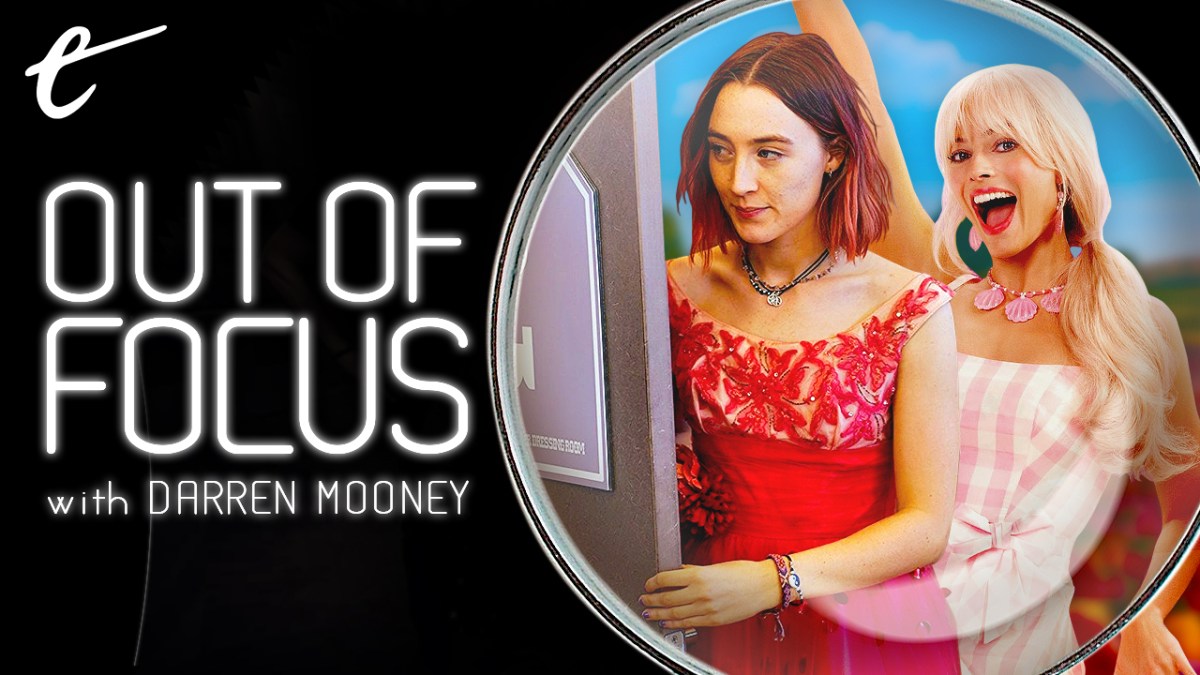Greta Gerwig’s Barbie is a massive success. Gerwig was already an established filmmaker, with three Oscar nominations for her work as writer and director on both Lady Bird and Little Women. However, the critical, commercial, and cultural success of Barbie pushes her into the rarified atmosphere of the studio auteur, alongside directors like Jordan Peele. However, the success of this blockbuster based on the iconic Mattel toy line has prompted debates about what kind of filmmaker Gerwig is.
With the release of Barbie, and perhaps accelerated by reports she will direct at least two Narnia movies for Netflix, there has been some anxiety that Gerwig has abandoned her roots as an independent filmmaker. Caspar Salmon lamented, “Does the phrase ‘selling out’ have any meaning any more?” There is a sense that Gerwig has lost something in her transition into the mainstream, particularly for critics who latched on to her within that framework.
It is easy to understand why so many fans see Gerwig as an independent filmmaker. She emerged in the 2000s as a key figure in the low-budget world of “mumblecore.” This creative scene was influenced by directors like Woody Allen or John Cassavetes, with actors, writers, and directors collaborating to make improvised slice-of-life dramas that were often shot on the fly. Mumblecore was defined by its naturalism, creative freedom, and spontaneity.
Gerwig was the face of that movement. She was the subject of profiles describing her as “the queen of mumblecore” or “an ingenue for the text-message set,” and called “mumblecore’s Meryl Streep.” Indeed, Gerwig’s oft-forgotten first directorial credit came on Nights and Weekends, a mumblecore drama about a couple struggling through a long-distance relationship that she directed alongside her co-star Joe Swanberg.
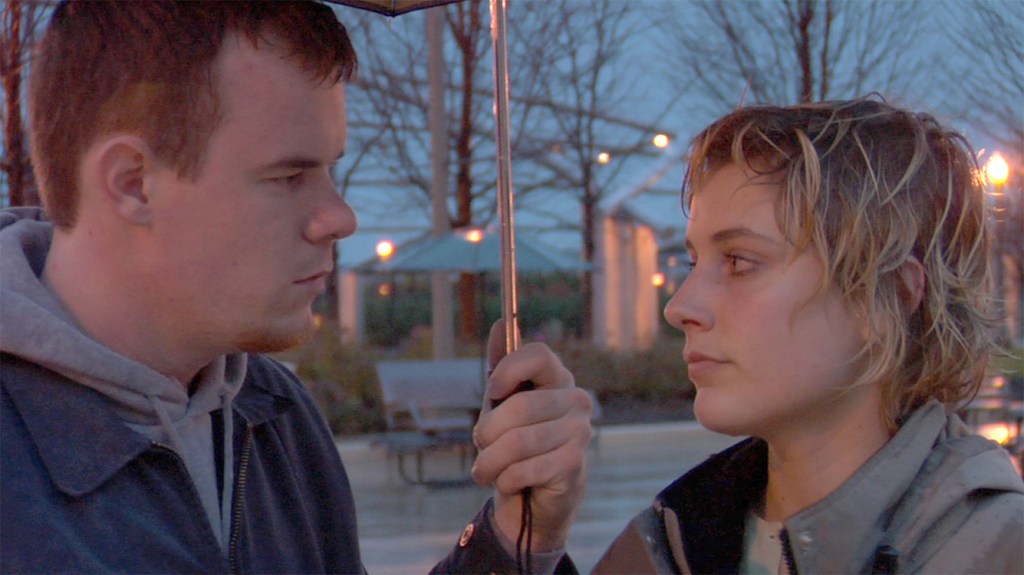
Many of the genre’s key figures went on to greater success in the early 2010s. Swanberg directed Drinking Buddies and created the Netflix show Easy. The Duplass Brothers brought Hollywood stars to the genre, casting John C. Reilly, Marisa Tomei, and Jonah Hill in Cyrus and Jason Segel in Jeff, Who Lives at Home. Lena Dunham’s Tiny Furniture was folded into the Criterion Collection in 2012, the same year she created Girls at HBO.
These projects were adjacent to the aesthetics of mumblecore, embracing the naturalistic style that defined the genre. Some were more successful than others, but mumblecore never truly broke into the mainstream. Even Girls, buzzy as it was, never broke out like the biggest HBO shows. The Duplass Brothers haven’t directed a feature since The Do-Deca-Pentathlon in 2012, instead prioritizing their work as actors, producers, and writers.
What distinguishes Gerwig from so many of her contemporaries within mumblecore is the sense that she always had ambitions outside of it. When Gerwig made her mainstream acting debut in Greenberg in 2010, a profile in The Guardian discussed her history within the genre before stating that the actor had “left that life behind.” In hindsight, it is interesting that Gerwig seemed to break with the movement just as it would become mainstream-adjacent.
During the 2010s, Gerwig continued to work with filmmakers tied to the broader independent movie scene, such as her partner Noah Baumbach, Woody Allen, and Whit Stillman. Gerwig’s work was largely parsed through the expectations of that sort of independent cinema. Her solo directorial debut, Lady Bird, was treated as a semi-autobiographical work with critics like Peter Debruge asserting that the title character was “basically her, 15 years younger and played by Saoirse Ronan.”
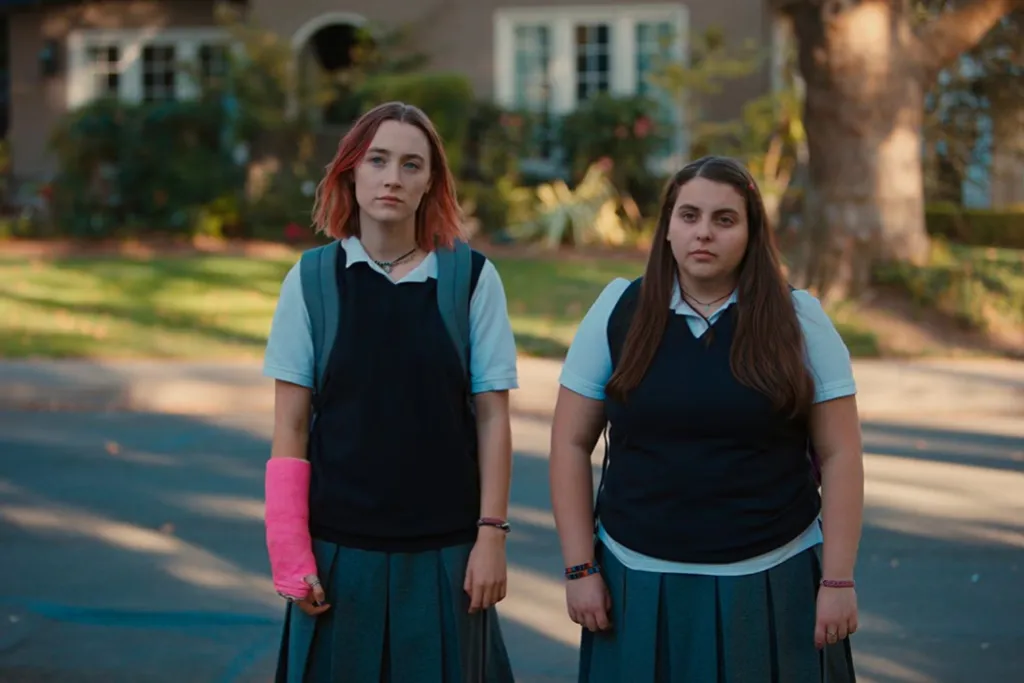
That was an easy assumption to make. Gerwig grew up in Sacramento, where the film is set, and mumblecore tended to tell “casual, semi-autobiographical relationship stories.” However, it was also entirely wrong. Christine “Lady Bird” McPherson is completely different in personality and characterization than Gerwig was as a teenager. “I was not like Lady Bird,” Gerwig explained. “I never made anyone call me a different name. I never dyed my hair bright red. (Instead of confronting authority), I was very much a people-pleasing kind of kid.”
Lady Bird stands quite apart from the scene from which Gerwig emerged. Mumblecore films were largely improvised by the cast, but Lady Bird was scripted by Gerwig alone; initial drafts ran to 350 pages. While mumblecore favored handheld cameras, nearly every scene in Lady Bird was shot on a dolly-mounted Alex camera. While mumblecore embraced spontaneity, Gerwig and cinematographer Sam Levy began creating a shot list a year before they started filming.
Lady Bird distinguishes itself from many comparable independent films through more than just its technical craft. Gerwig is fundamentally a crowd-pleaser in a way that many of her contemporaries are not. Lena Dunham, perhaps the other most successful figurehead of the mumblecore movement, is a famously confrontational storyteller. While Gerwig’s long-term partner Noah Baumbach has the broad platform that comes from working with Netflix, he is still making films as challenging and inaccessible as White Noise.
In contrast, there is a surprising gentleness and humanism to Lady Bird. Gerwig refuses to leave the audience with any uncomfortable or unresolved feelings. In the end, Christine gives up her teenage rebellion. After years of struggling against the religious authorities at her school, she goes to mass. She accepts the name that her parents gave her instead of calling herself “Lady Bird.” She heals the damaged relationship with her mother (Laurie Metcalf).
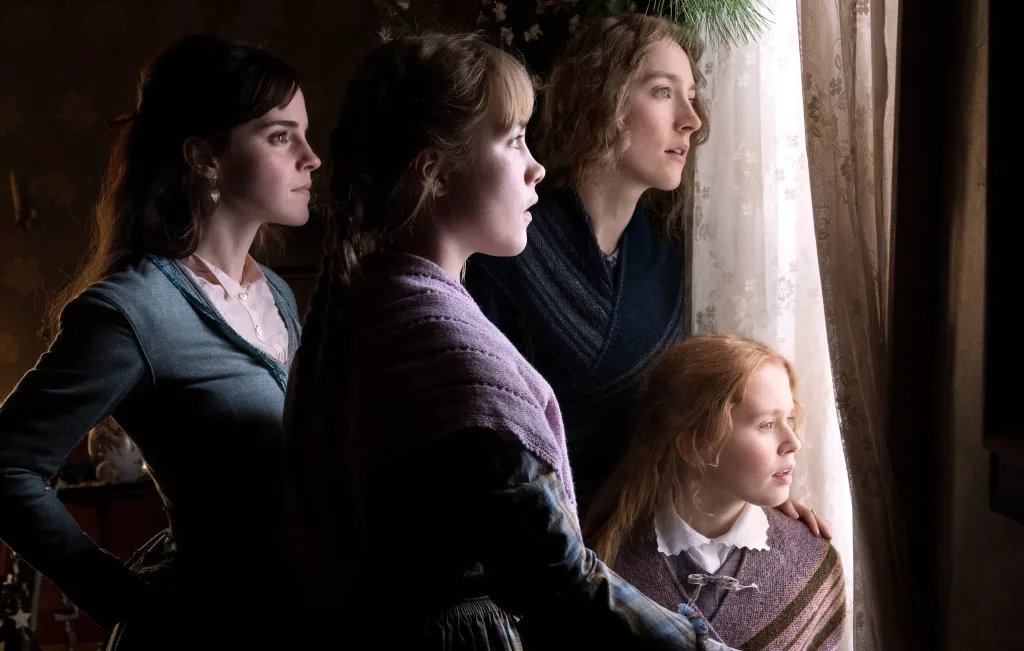
It is all very neat, and it exists in sharp contrast to the messiness and ambiguity that tends to define the interpersonal relationships in more traditional independent dramas. Sure, Christine’s family is facing a looming, devastating recession and she will likely graduate into a hostile economy under mountains of student debt, but the film’s big emotional and character arcs are designed to appeal to as broad an audience as possible. This isn’t as alienating or antagonistic as something like Girls.
As a filmmaker, Gerwig has a populist sensibility that distinguishes her from many of her contemporaries. It is obvious in Little Women, an adaptation of Louisa May Alcott’s beloved novel. Alcott famously resented Little Women. She wanted to write pirate stories and pulpy adventures, but was pressured by a male editor to write “a girl’s story” because that is what would sell. She famously wrote that she considered ending the narrative by having an earthquake bury the characters and the school “so deeply in the bowels of the earth that no [archaeologist] could ever find a vestige of it.”
Gerwig cannily (and perhaps cynically) inverts this dynamic. In Gerwig’s Little Women, it is the greedy editor Mr. Dashwood (Tracy Letts) who wants Jo March (Saoirse Ronan) to supply him with “stories of the scandalous variety.” Dashwood must be convinced these stories “of domestic struggles and joys” of ordinary women are worth publishing. As such, Gerwig transforms the complicated and thorny real life story of a female author forced by a male publisher to write these stories into a feel-good pop feminist affirmation.
This explains why Gerwig is such a good fit for Barbie, a movie based around a line of iconic toys and produced by the company that manufactures such toys. Despite her background, Gerwig isn’t a particularly subversive filmmaker. She is a smart and articulate one, who can thread a line between crowd-pleasing populism and thoughtful commentary, without alienating or antagonizing anyone. As the trailer promised, Gerwig made a Barbie movie for people who both love and hate the property.
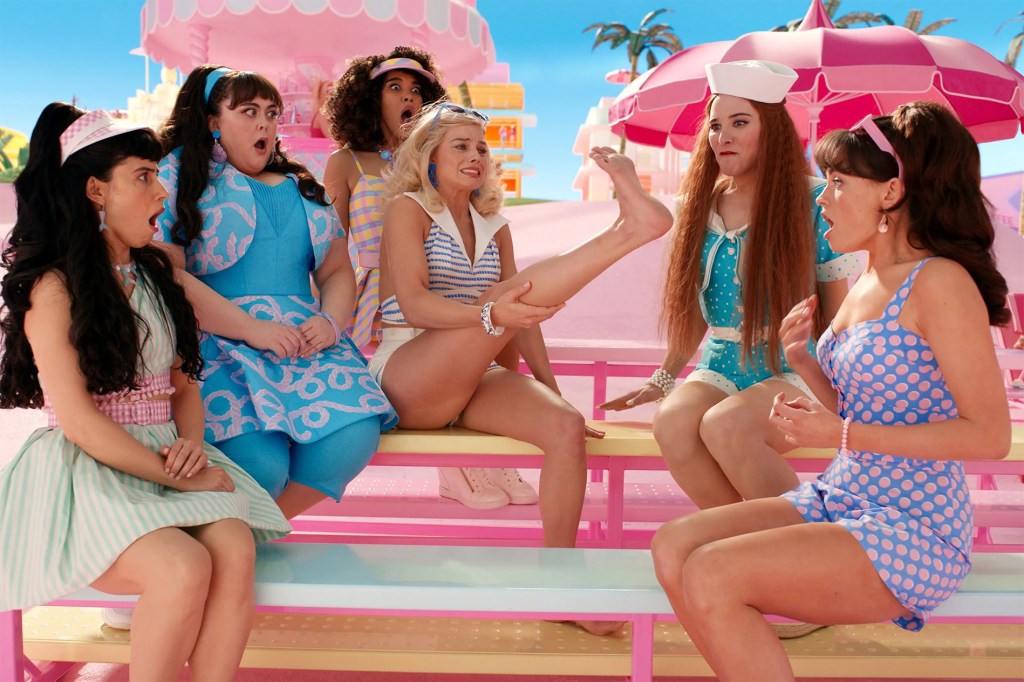
This is not to diminish Gerwig as a filmmaker with a distinct vision. She is an auteur. She has her own recurring interests and preoccupations; they just aren’t as wedded to the framework of independent filmmaking as some observers might suggest. Lady Bird, Little Women, and Barbie are all films about what it is to be a woman, particularly an artistic or creative woman, in a hostile world. Both Lady Bird and Barbie are fundamentally movies about motherhood.
Gerwig readily acknowledges that her films are still personal, even in abstract ways. “When you’re directing something, you have to be a bit stupid about yourself, or a little bit unconscious,” she acknowledged, conceding that Barbie’s (Margot Robbie) journey from plastic doll to fully realized human being might reflect her own opinions about how the industry sees her. Barbie is the story of an ingenue who becomes flesh and blood.
Gerwig also has her own thematic preoccupations. Although she does not have “an identity or affiliation with a particular (religious) institution,” her experiences attending Catholic school influence her writing. “I always have — and I do think honestly it reflects my four years of theology — I always have some religious story threaded underneath that people can pick up on or not pick up on,” she admitted in press for Lady Bird. Gerwig is very much a Pop Christian filmmaker.
Lady Bird ends with Christine going to church and reconciling with her mother, fairly overt religious imagery. Gerwig has talked about the relationship between Barbie and Ken (Ryan Gosling) as “the opposite of the creation myth in Genesis,” and the film can be read as an inversion of the Adam and Eve myth. Barbieland is Eden, free from the Original Sin of sexism, until Ken is tempted by the Apple of patriarchy and threatens to destroy paradise. The film presents Barbie as a divine figure. Barbie is “everything,” after all.
It is a shame that Gerwig is moving into an industry so heavily reliant on intellectual property that it seems unlikely she’ll get to work on her own original projects. It is also tragic that the film industry has become so hostile to independent filmmakers that directors like Xavier Dolan have been forced to retire. It is also sad that it is so rare to get charming low-budget indies like Lady Bird and beautifully crafted literary adaptations like Little Women that foreground women’s perspectives.
All of those things are true. However, it is also true that Gerwig doesn’t necessarily want that career for herself. It is likewise unreasonable to place the burden of fixing those issues on Gerwig. “Her ambition is to be not the biggest woman director but a big studio director,” her agent Jeremy Barber told The New Yorker. She is, in her own words, “making art to be seen by people.” And based on the evidence to date, that’s where her strengths lie. Gerwig’s work is instinctively more accessible and more crowd-pleasing than that of Baumbach or Dunham.
That may not be what some fans and critics want from her. They might feel that they are losing something in the transition. However, if Gerwig’s filmography is about anything, it is about the idea that she should get to make that choice for herself.

